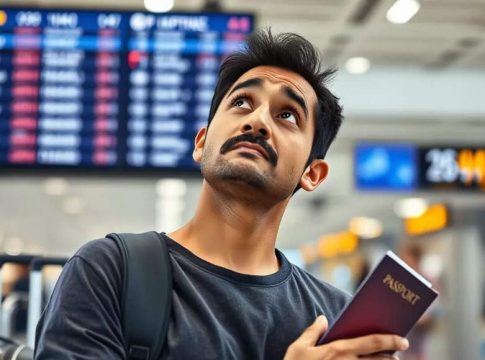Navigating Flying Anxiety After Recent Aviation Tragedies
In the wake of tragic events such as the recent Air India plane crash that claimed 242 lives, many individuals are grappling with an overwhelming sense of anxiety about flying. Such incidents can provoke intense emotions, stirring fears that may linger long after the news headlines fade. If you find yourself feeling uneasy about air travel, know that you are not alone—and there are constructive ways to address these feelings.
Understanding Fear of Flying
The fear of flying, or aviophobia, often stems from anxiety about potential dangers associated with flying, such as turbulence or mechanical issues. Often, these fears are magnified in the aftermath of a high-profile crash. Many people reported heightened anxiety, including insomnia, panic attacks, and an inability to focus on daily activities when loved ones are in the air. For some, these feelings have spurred a surge in therapy requests focused on overcoming flying fears, showing just how deeply a single event can resonate in our lives.
Coping with Anxiety
1. Seek Professional Help
If flying anxiety feels overwhelming, reaching out to a mental health professional can be incredibly beneficial. Specialized therapies, such as exposure therapy, have shown effectiveness in helping individuals confront their fears gradually and safely. In fact, many therapy programs specifically designed for fear of flying have seen a significant uptick in demand in recent weeks.
2. Educate Yourself
Knowledge can offer comfort. Understanding the safety statistics of air travel—such as the fact that flying is statistically one of the safest forms of transportation—can often help alleviate irrational fears. Familiarizing yourself with the aircraft, its safety protocols, and the training pilots undergo can also provide reassurance.
Practical Strategies for Managing Fear
-
Ground Yourself: Techniques such as deep breathing, mindfulness, or progressive muscle relaxation can help calm an anxious mind. Engaging in these practices before and during a flight can anchor you in the moment.
-
Limit Media Exposure: While it can be tempting to seek out information, focusing on distressing news reports can amplify fear. Consider taking a break from news about aviation accidents, especially if it negatively impacts your mental health.
- Talk About It: Sharing your fears with a trusted friend or family member can lift some of the weight off your shoulders. Often, discussing worries openly helps demystify them.
Moving Forward
Air travel remains a vital means of connection and exploration in our world. While the emotional aftermath of a tragedy can feel daunting, it’s important to know that these feelings are shared and can be managed. Developing a toolkit of strategies for coping, alongside professional support if needed, can empower you to reclaim your confidence in flying.
Remember, while our fears can feel insurmountable, they do not have to define us. You have the resources within you—whether through self-care practices, community support, or professional help—to navigate this challenging experience. Embracing the journey, both in the air and in life, is a path toward healing and resilience.

Covers wellness, nutrition, mental health, and daily life tips.
Bio: Talia brings a background in health journalism and holistic living to help readers live better, one tip at a time.

